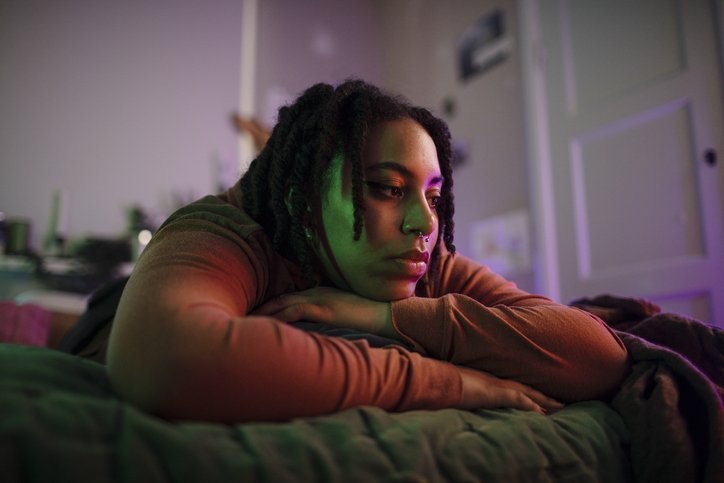
In 2008, the Mental Health Parity and Addiction Equity Act required insurers to provide equal coverage for mental and physical illness. Despite this federal legislation, great disparities in coverage remain. According to insurance industry data, patients are much more likely to pay out-of-pocket for mental health treatment than for other forms of care.
This difficulty in accessing mental health treatment has different implications for people of different ages. Data from YouGov Profiles indicates that younger consumers are less likely to consider themselves mentally healthy. Only 44% of Gen Z and 48% of millennials say they’re mentally healthy compared to 71% of baby boomers. Among Gen X, just over half of Americans (54%) say they’re mentally healthy.
Young adults are more likely to seek treatment. Nearly a fifth of Gen Z (18%) sought mental health treatment in the past year, more than double the proportion of baby boomers who did the same (8%).
Younger consumers are also less likely to associate mental health treatment with social stigma. Just over half of Gen Z (55%) say there’s a stigma around seeking mental health treatment in the US, the lowest of any generation. Millennials (59%) and Gen X (68%) fall in the middle.
But what are the different generations likely to seek treatment for? For the most part, it’s millennials and Gen X that have the highest rate of being diagnosed with common mental ailments over the course of their lives. This may be partly because, being older than Gen Z, they’ve had more years in which to be diagnosed. Yet, they’re younger than baby boomers who lived most of their lives before mental health diagnoses became very common.
Gen Z, at 8%, it four times more likely than baby boomers to have ever been diagnosed with ADHD, which was not a common diagnosis when baby boomers were young. They’re two-and-a-half times more likely to have been diagnosed with substance problems (5% vs 2%) and significantly more likely to have been diagnosed with anxiety than their baby boomer counterparts (27% vs 21%). For anxiety and depression, millennials and Gen X have the highest rates of diagnosis among the generations. Gen Z is least likely of all generations to have been diagnosed with depression, at 18%. Baby boomers are the second-least likely, at 20%.
Explore our living data – for free
Discover more health and pharma content here
Want to run your own research? Run a survey now
Make smarter business decisions with better intelligence. Understand exactly what your audience is thinking by leveraging our panel of 20 million+ members. Speak with us today.
Methodology: YouGov Profiles is based on continuously collected data and rolling surveys, rather than from a single limited questionnaire. Profiles data for the US is nationally representative and weighted by age, gender, education, region, and race. Learn more about Profiles.